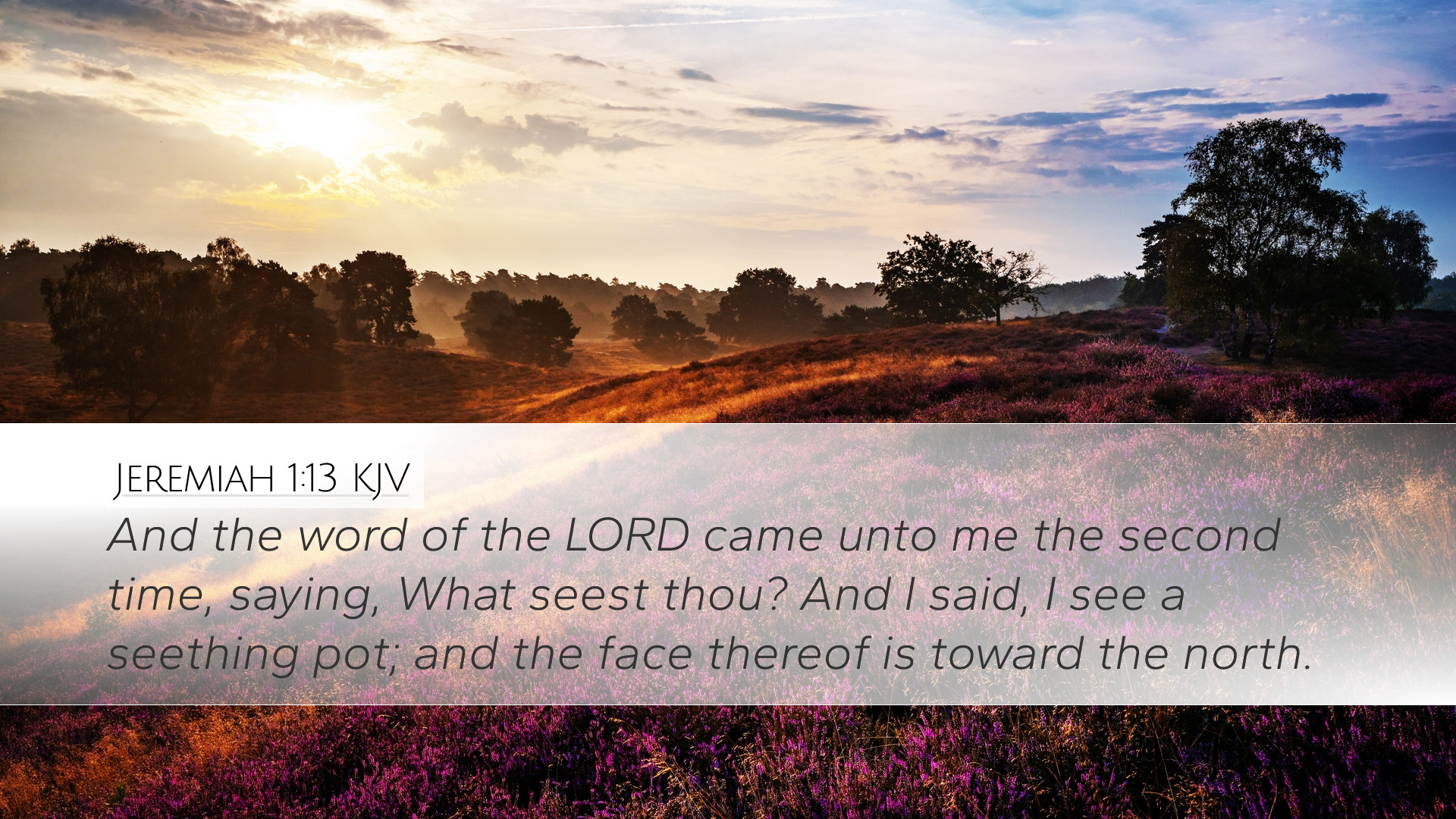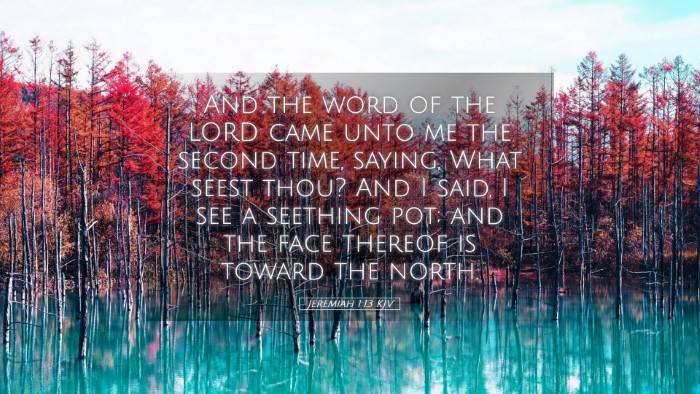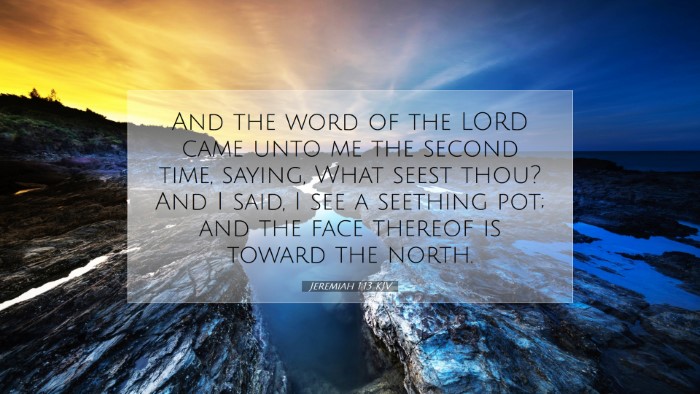Commentary on Jeremiah 1:13
Jeremiah 1:13 states: "And the word of the Lord came unto me the second time, saying, What seest thou?" This verse serves as a pivotal moment in the prophetic call of Jeremiah, leading to a comprehensive understanding of not only the prophet's mission but also God's method of communication with His chosen messengers.
Contextual Analysis
The context of Jeremiah’s calling is essential to grasping the significance of verse 1:13. Jeremiah, chosen as a prophet during a tumultuous period in Judah, undergoes an intense spiritual preparation. The introduction of the metaphorical visions provides depth to God’s calling.
Historical Background
In the late 7th century BC, Judah faced moral decay and impending judgment. Jeremiah's prophetic ministry spanned decades, marked by his warnings against idolatry and apostasy. Public domain commentaries, such as those by Matthew Henry, illustrate this period's urgency and the despair Jeremiah experienced when delivering his messages.
Theological Significance
This verse highlights God's persistent communication with His prophets. The repeated instances of divine revelation underscore the significance of vision and understanding in prophetic ministry. According to Albert Barnes, the question posed by God not only seeks confirmation of Jeremiah's vision but also invites deeper reflection on the implications of what he sees.
Divine Communication
The phrase "the word of the Lord came unto me the second time" indicates a personal and active relationship between God and Jeremiah. Adam Clarke emphasizes the importance of continual divine communication, suggesting that the repetition signifies a deepening of Jeremiah's prophetic insight. Each encounter enriches the understanding of God's intentions and the prophet's role.
Imagery of the Boiling Pot
In the verses that follow, God reveals a boiling pot, symbolizing the impending disaster that would befall Judah. This arresting imagery conveys not only the urgency of God's message but also the emotional turmoil Jeremiah might face. The boiling pot suggests that judgment is brewing and will soon overflow, akin to the political and social climate of the time.
Application for Leaders and Scholars
This verse encourages pastors and theological students to recognize the significance of listening for God's voice, especially in challenging times. In their ministry, leaders must be attuned to what God communicates—not only through personal study but also through communal discernment and prayer.
- Listening in Silence: Just as Jeremiah establishes a dialog with God, leaders should cultivate silence and reflection in their leadership practices.
- Spiritual Vision: The importance of 'seeing' in a spiritual context can direct scholars to develop discernment in interpreting cultural and societal issues through a biblical lens.
- Responding to God’s Call: New ministers should prepare themselves for divine directives, recognizing their calling may come through various forms of confirmation and challenge.
Conclusion
Jeremiah 1:13 serves as a profound reminder of the dynamic relationship between God and His prophet. This verse not only articulates the process of divine revelation but also challenges modern believers to remain vigilant in their spiritual journeys. The insights from public domain commentaries affirm that as God engaged with Jeremiah, He continues to engage with His people today, inviting them into a deeper understanding of His will and purpose.


